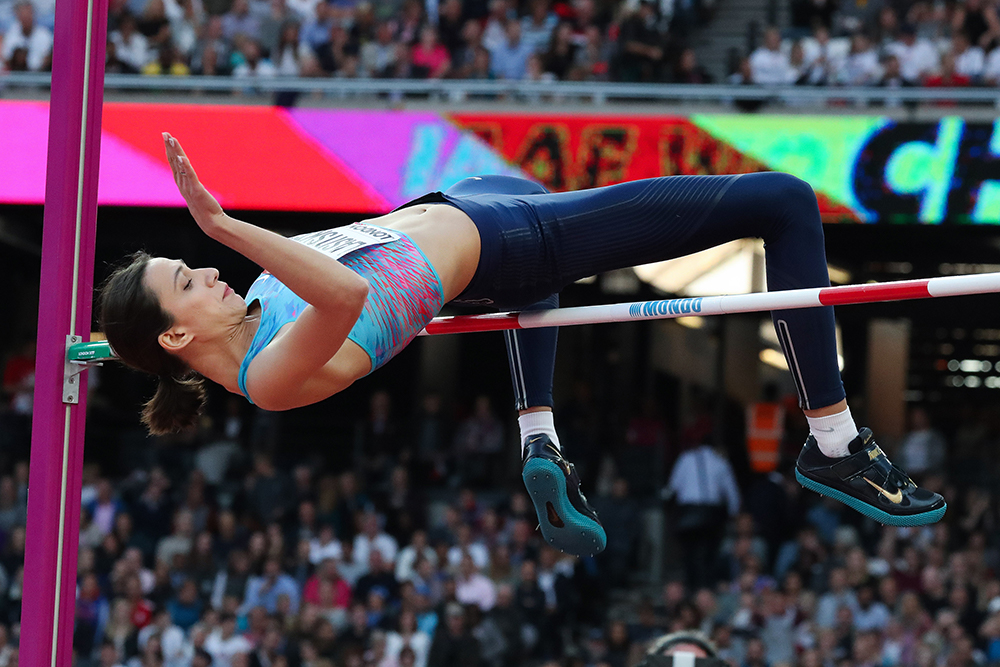
In mid-September shockwaves hit the sports world as WADA’s Executive Committee voted 9–2 to reinstate Russia’s testing arm, RUSADA, claiming that the Russians had complied with the remaining criteria to be readmitted to the world sporting community. The ball had been set rolling the week before, when WADA’s 6-member Compliance Review Committee (CRC) recommended reinstatement.
That spurred Beckie Scott, a Canadian member of the CRC, to resign in protest. “They have dealt a devastating blow to clean sport,” she explained.
The CRC’s recommendation came as the result of a letter sent to the Russian sports minister in June by WADA president Craig Reedie and director-general Olivier Niggli. That letter, according to the BBC, was a bid for a compromise, saying “this is the most opportune time to deal with the two unresolved conditions.” The overture followed a May ExCom meeting at which IOC members and other sports representatives lobbied hard for the reinstatement.
One of the required criteria was that the Russians had to accept the findings of the WADA-commissioned McLaren Report. That bar was lowered to the Russian sports minister’s acceptance of the IOC-backed Schmid Report and WADA said that the Russians had “sufficiently acknowledged the issues identified in Russia.” The Schmid Report generally backed the McLaren Report but omitted references to Russian government knowledge and orchestration of the doping program.
The other criterion was that the Russian government provide access to the data and samples from the Moscow laboratory via an independent expert. That has not happened yet, though the Russians have offered a commitment to do so. Reedie insisted that the committee would declare Russia non-compliant again if it did not follow a “clear timeline” on access to the laboratory data. Access to the data is supposed to happen by December 31, with all samples analyzed by June 30.
A Less-Than-Popular Decision
The reaction—not surprisingly—from many quarters of the sporting world was one of outrage. Norway’s Linda Helleland, a WADA VP, was one of the two who voted against the proposal. “I am very disappointed on behalf of the clean athletes and everyone who believes in clean sport,” she said. “This casts a dark shadow over the credibility of the anti-doping movement.”
USADA’s CEO, Travis Tygart, was among the most strident opponents of the whole process, first saying the CRC recommendation “stank to high heaven.” After the vote was final, he added, “We trusted them. They cheated like never before. This is a slap in the face for those who put clean sport and fair play above sport politics and the influence that money and large countries have with the sport promotion arena.”
The IAAF has made it clear that it will not rubber stamp the WADA decision and allow Russia back into the IAAF with open arms (see sidebar). The IAAF conditions remain in force, one of which is the Russian government’s acceptance of the findings of the McLaren Report. In addition, the IAAF is demanding that Russia pay the cost of the investigation and the IAAF Task Force on the issue. That figure could run into the millions.
Federation head Seb Coe, while being careful not to condemn WADA, penned an opinion piece for the London Evening Standard. What he said, in part:
“The reinstatement of RUSADA puts Russia back in charge of testing its athletes. Is it ready for that? Will the world’s athletes trust that a system that was so appallingly manipulated is safe and secure now?… The progress against the reinstatement criteria has been overseen by an independent taskforce, chaired by Rune Andersen and including members of the IAAF Council. This process has served us well and allowed us, through our own testing measures, to enable Russian athletes to compete in international competitions as neutrals. The Taskforce will review the WADA decision and check RUSAF progress on other criteria still outstanding. In December, they will submit a report for us to consider at a meeting of our council, which includes Inaki Gomez, chair of the Athletes’ Commission.”
The reaction of athletes to the news has been swift and unequivocal. Said marathon WR holder Paula Radcliffe, “This goes against everything WADA is supposed to stand for. It undermines their credibility and the faith clean athletes have in them.”
The IAAF Athletes Commission penned a letter prior to the vote, urging WADA to stop the proposal: “We believe that any compromises to the Roadmap will tarnish WADA’s reputation and bring global sport into disrepute.”
“Would love to know the actual motives of this decision…” tweeted Molly Huddle.
Hurdle legend Edwin Moses said in an op-ed in the New York Times that the decision “has sparked shock among sports fans and clean athletes worldwide, who, like me, and with no transparency from the global anti-doping body, are scratching their heads at this abrupt, curiously timed development.”
Jim Walden, the lawyer for whistleblower Grigoriy Rodchenkov, who provided much of the evidence that led to the Russian ban, accused WADA of committing the “greatest treachery against clean athletes in Olympic history.”
And who supports the reinstatement of Russia—besides the Russians? (“I won’t hide it, the mood is good,” said the head of the Russian federation.)
Janez Kocijančič, president of the European Olympic Committee, said that extending the ban “is an illegitimate sanction, something that you can’t justify.”
Pundit Alan Abrahamson argued that it’s in “everyone’s interest” to have a compliant Russia. “At some point there needs to be closure. That time is now.” □